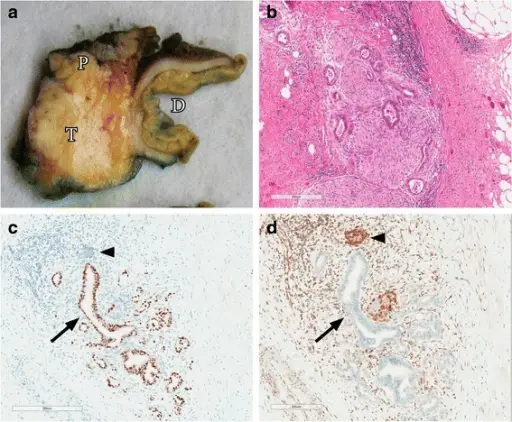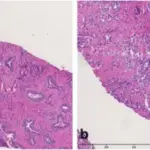Ductal Adenocarcinomas is rare prostatic carcinoma constituting of pseudostratified columnar cells glands lining similar to endometrioid epithelium.
What is the Pathology of Ductal Adenocarcinomas?
The pathology of ductal adenocarcinomas is The study of the structure and functional changes of the prostate ducts in presence of prostatic carcinoma constituting of pseudostratified columnar cells glands lining similar to the endometrioid epithelium.
-Etiology: The cause of ductal adenocarcinomas is unknown.
-Genes involved: Unknown.
-Pathogenesis: The sequence of events that lead to ductal adenocarcinomas is unknown.
-Morphology: The morphology associated with ductal adenocarcinomas shows prostate enlargement and nodules.
-Histology: The histology associated with ductal adenocarcinomas shows abnormal prostatic glands that lose the characteristic two cell lining.
How does Ductal Adenocarcinomas Present?
Patients with ductal adenocarcinomas are typically older males. The symptoms, features, and clinical findings associated with ductal adenocarcinomas include urinary tract symptoms, and hematuria.
How are Ductal Adenocarcinomas Diagnosed?
Ductal adenocarcinomas are diagnosed through laboratory studies and biopsy.
How are Ductal Adenocarcinomas Treated?
Ductal adenocarcinomas are treated through radiation therapy, hormonal therapy, and surgery.
What is the Prognosis of Ductal Adenocarcinomas?
The prognosis of ductal adenocarcinomas is poor especially with Gleason score 6 and above, and stage III or high.



